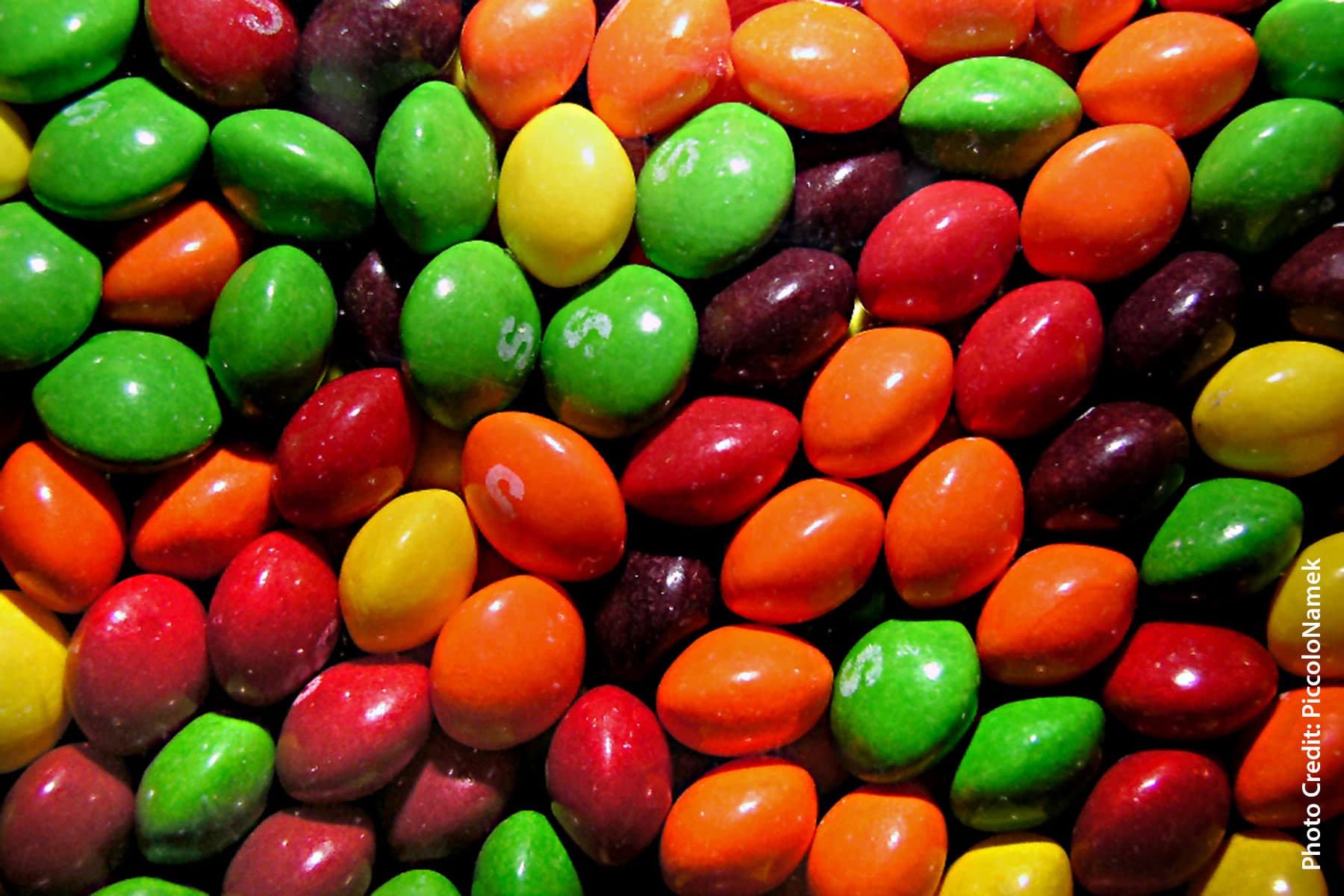
July 20, 2022 – Hitting pause on the longstanding debate over color preference for Skittles candy, a new conflict has arisen on the safety of the fruity vending machine staple.
A California lawsuit claims one of the country’s favorite multicolored candies is “unsafe to consumers,” citing “heightened levels of titanium dioxide (TiO2),” a possible carcinogen commonly referred to as food additive E171. The chemical is often used in food and sunscreen products as a color enhancer and UV filter.
Mars Inc. committed 6 years ago to remove the enhancer from its products, a move the lawsuit claims was misleading and unsuccessful.
“We are pleased to see Mars Inc. has taken a positive step toward eliminating toxic, unnecessary nanomaterials,” Jaydee Hanson, senior policy analyst at the Center for Food Safety, said at the time. “We urge the company to speed up the removal of these additives, especially given the grave health concerns associated with titanium dioxide and other nanoparticles.”
The FDA allows the use of TiO2 as long as levels do not exceed 1% of the weight of the food, according to federal regulations.
“While we do not comment on pending litigation, our use of titanium dioxide complies with FDA regulations,” a company spokesperson said in an email.
The lawsuit claims that while within FDA guidelines, Mars Inc. does not adequately inform consumers about the use of the harmful additive, and that the natural metal element is unnecessary to maintain the quality of the product.
“[Skittles] relies on the ingredient list which is provided in miniscule print on the back of the product, the reading of which is made even more challenging by the lack of contrast in color between the font and packaging,” the suit contends. “Numerous competitors do not use TiO2 in their products and yet are able to maintain the colorful impression the defendant hopes to achieve.”
In past years, companies like Dunkin Donuts have removed TiO2 and other artificial colorings from their products. And in 2021, the European Food and Safety Authority declared the potentially poisonous form of nanoparticles unsafe when used as a food additive.
As international criticism heightens, countries are being pressured to pick sides in the debate over the classification of titanium dioxide. While the EU Commission has deemed TiO2 unsafe, the chemical is widely used in countries like the United States, Canada, Mexico, and Australia.
